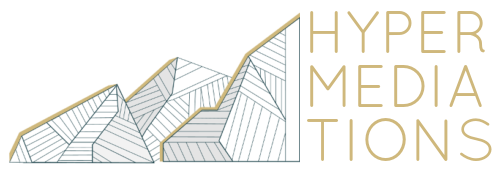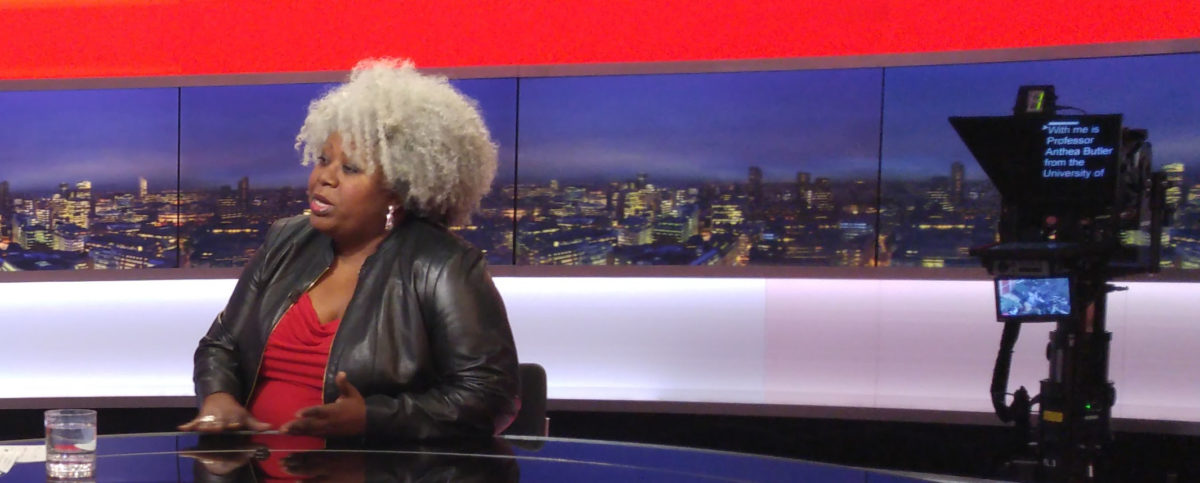How would you describe your scholarly background?
Unlike most people I know, I am trained as a religious historian, not of a period, but of two-thousand years of Christian history, which makes me a bit of anomaly in the world of Religious Studies. Currently, I would say I am a historian, and religion and media scholar who is also a public intellectual. Most of my work now is in the area of American Religion and African American Religious history, from the nineteenth to the twenty-first century.
You mentioned your experience in both religiously affiliated and secular institutions as being unique. Do they differ with respect to how they approach public scholarship?
I think they do. Secular institutions are still trying to figure out the boundaries of public scholarship. Secular institutions are equipped to let “reports” or studies come out for the public, but when it comes to actually engaging with the public they like to set the terms and the boundaries of what that means, and continue to use academic terms and jargon in many ways.
By comparison, religiously affiliated institutions are already reaching out to their particular publics. These institutions know the roles they are training people for (like ministry, chaplaincy, and other similar positions) require being able to talk with and engage the public.
What are the challenges and potentialities of public scholarship?
How long do you have? First, public scholarship will provide you with a network of many interlocutors which can improve your scholarship immensely. It also provides an opportunity to educate not just your students, but a public hungry for information you have. Diverse writing opportunities and outlets will be open to you which publish much faster than traditional journals and academic publishing—this can be very gratifying since you will see your work in print much faster. You will also invariably learn to be a more concise thinker and writer when dealing with the public, and won’t have room to rethink and rehash as you normally might.
As for the challenges, your institution won’t appreciate the extra work you do. More specifically, if you are a woman, of ethnic descent, or non-Christian, you will probably at some point be attacked in public for your work if someone does not like your writing or opinions. If you are all three, think carefully before you enter.
And a few things that seem like both challenges and potentialities: You may find yourself in the midst of a social movement, which could be very good or not depending on the outcome! Also, you will have to get used to the fact that everything is public—when you think you aren’t public, you are.
In your experience engaging with various media outlets as an expert on religion, what are some things media practitioners seem to misunderstand or incorrectly assume about religion?
A big one is that clerical people are the only ones who understand religion. It irks me every time I see a Catholic priest on TV to talk about Catholicism because there is an assumption that only priests understand the tradition. Not true. Media bookers who schedule guests are the worst about this.
Another is that all religion is dogmatic. People want black and white answers on TV when sometimes it’s grey, and media doesn’t have room for that.
Media practitioners also tend to assume that Protestants and Catholics are the only ones who have moral values, and that conservative viewpoints are the only ones that are “religious.”
In your keynote at the International Society for Media, Religion and Culture‘s 2018 conference, you mentioned declining an interview invitation from a prominent media outlet. I imagine many scholars would jump at the chance for that kind of exposure. How do you discern when to say “no” to these sorts of invitations?
If it is Fox News, just say no! I don’t need to have a bunch of trolls, who are waiting at their computers or phones, contact my institution because they don’t want to see a black female professor spar with Sean Hannity.
More generally, I would advise saying no if it’s a tricky subject and you don’t have media training—I can’t stand it when people get on TV and “ummm” themselves into oblivion. Also, if it is time-sensitive and you can’t think on your feet, or it isn’t your “lane” as a scholar (i.e., it takes too much of your time to research), don’t do it. The news cycle moves fast so if it’s a fast moving story with a short shelf-life I would say avoid it but if it is a piece outside of that, then consider it.
As for op-eds, you have to be okay with editors tearing up your work and can’t be over-sensitive about it. Op-eds also require a distinct, very concise style of writing so if you don’t have experience, don’t bother.
Finally, always remember not to stiff your day job!
What is your current project of public scholarship and what are your goals?
One of my current projects is that I’m an American Council of Learned Societies Fellow in Religion, Journalism and International Affairs. Specifically, I’m looking at the prosperity gospel and politics in Nigeria. As you know, I’m also part of the Center for Media, Religion, and Culture’s Interdisciplinary Working Group for the Public Religion and Public Scholarship in the Digital Age project and am looking at the effects of social media on African American Women and their religious worlds.
What advice would you give students and younger scholars on balancing how much time and energy they devote to more public types of engagement versus conventional academic output (e.g. conferences, journal articles)?
To start, be clear about your goals. If you just want to be on TV, rethink your priorities. However, don’t be afraid to self-promote, especially if you research a topic that is in the news. Just be sure to talk with your advisor or chair whenever you decide to jump into the fray, or if you have to talk about a volatile subject. Give them a head’s up so they know what might be coming down the pike. Also, make sure the media outlets you write for or appear on are ones you won’t be embarrassed about later.
Next, have a clear public presence online and make it look good. You can’t be public if you are not public, meaning your social media (all of it) should line up with who you are as an academic. At the same time, be careful about your public facing information. Make sure you can’t be doxed or have all your information revealed in public. And archive, archive, archive! Many sites go down or are defunct so it is up to you to keep all your media hits in one place—you never know when you might need them later.
Finally, if it’s a TV appearance, make sure your clothing and hair are in good shape. TV is unforgiving. Invest in a few good outfits, and learn basic makeup (especially if you’re in a small media market).
Interview by Art Bamford

